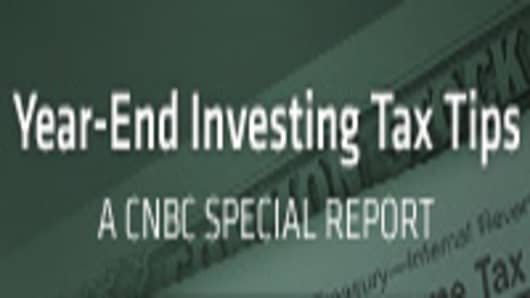Not sure how to position your portfolio for tax year 2011? Join the club.
First it seemed, the White House and Congress might not be able to agree on a plan to extend the so-called Bush tax cuts, which are slated to expire on Dec. 31.
Absent any action from Washington, the marginal income tax rates would have climbed for all US taxpayers next year, and the long-term capital gains rate would revert back to its 2000 levels, climbing to 20 percent from 15 percent today. The dividend rate would also rise to ordinary income tax rates from a maximum of 15 percent today.
Republicans, who took control of the House in the November midterm election, wanted to extend the lower rates for all Americans, while Pres. Obama was prepared to extend it for the middle class but let it expire for high-income earners.
Despite a lack of support from his party, however, he cut a surprise deal with the GOP on Dec. 6 to temporarily extend the cuts across the board for two more years.
But it’s not over yet.
Now Democratic leaders are threatening to reject any such package if it comes to the floor for a vote, saying they won’t support a plan that includes tax breaks for the wealthy.
It’s like watching a tennis match at the U.S. Open, only a lot less fun—especially for investors.
Indeed, the year-end portfoliomoves that make sense if the capital gains and dividend rate remain favorably low could result in a bigger tax liability next year for investors if Congress ultimately decides to let rates rise in 2011 (if only for those in the highest two tax brackets.)
Lawmakers, of course, have the luxury of postponing their decision on the Bush tax cut until early in 2011, but year-end tax planners and investors have no such option.
They will have to decide before Dec. 31 whether to buy, sell or hold.
If Low Rates Prevail
If rates remain favorably low—the most likely scenario for middle class taxpayers—you’ll want to hold onto your stock market winners, says Christine Benz, director of personal finance for Chicago-based mutual fund tracker Morningstar.
“If rates stay the same, you’d want to defer the realization of capital gains as far into the future as you possibly can,” she says.
That means harvesting losses, or selling losing stocks to offset same-year capital gains (plus an additional $3,000 per year against ordinary income), before Dec. 31, to the extent it fits with your investment goals and diversification strategy.
If Rates Rise For The Wealthy
If the Bush tax cuts get extended for all but the wealthiest Americans, of course, your income becomes a factor.
Those making more than $200,000 ($250,000 for married couples), who would see their capital gains rate climb to 20 percent next year, should consider harvesting gains for the 2010 tax year to lock in the current 15 percent rate, “particularly if you were considering lightening up on them anyway,” says Benz.
Such a move could result in big savings.
For example, says Benz, an investor who put $10,000 into an emerging-markets fund in 2003 may now be sitting on $38,000.
By rebalancing back to their original position size in 2010, (meaning you sell $28,000 worth of their holding) you'll owe about $4,200 in capital gains tax.
If you wait until next year and their tax rate jumped, however, their liability would be $5,600.
Benz adds that any losses you might be able to harvest this year will be more valuable in future years if the tax rate for your income level climbs.
It’s worth noting, too, that there are no restrictions on buying back your high-flying stock if you wish to maintain your exposure.
The wash-sale rule, which prohibits taxpayers from claiming a loss on the sale of an investment and then repurchasing it within 30 days, applies only to stocks sold at a loss, says Mark Luscombe, principal tax analyst with CCH tax services firm in Riverwoods, Ill.
Those sold at a gain can be immediately repurchased without incurring a penalty.
“Some people mistakenly think that the wash-sale rule applies and it doesn’t,” says Luscombe. “You don’t face that issue on the gains side. If you have a stock you like and want to hold on it, you could sell it this year and lock in the 15 percent tax rather than a potential 20 percent rate next year, and then immediately rebuy it to maintain your investment in that stock.”
Paying Dividends, Paying Taxes
At the same time, he says, prudent tax planners should also consider the impact of a potentially higher dividend rate next year on their asset allocation.
“If you’ve shifted your portfolio to dividend paying stocksbecause of the increased attractiveness of those companies you might want to shift that back now before the rate goes back to ordinary income rates,” he says.
Daniel D’Ordine, a certified financial planner with DDO Advisory Services in New York, agrees.
“If you’re in a higher tax bracket in particular and you’ve been investing in such a way to take advantage of the lower dividend rate, you might want to do some shifting around because your tax bill could potentially go up,” he says.
While Washington appears to be getting closer to reaching a decision on the Bush tax cuts, and thus the status of capital gains and dividend rates for 2011 and beyond, “We’re getting so polarized that it’s hard to say now what will happen,” says Luscombe.
Regardless of the outcome, however, D’Ordine and Benz agree that investors should not let the tax tail wag the investment dog. Investors this year more than ever should make investment decisions guide them.
“If you’ve gone through the rebalancing processand identified areas you want to trim back on it make sense from a tax standpoint to go ahead and do it,” says Benz. “But only make changes if the investment considerations line up with tax considerations.”



